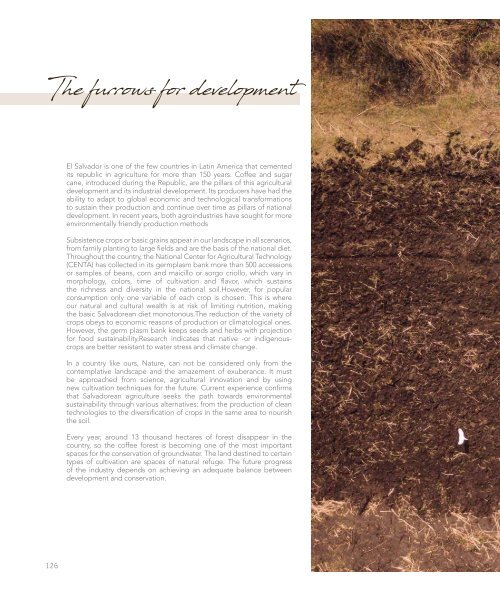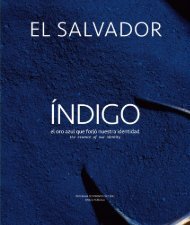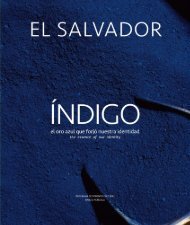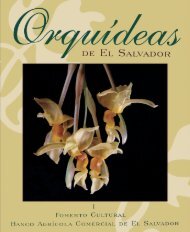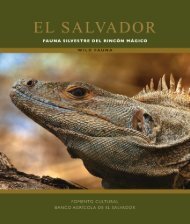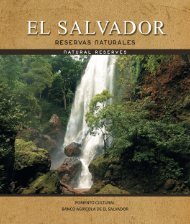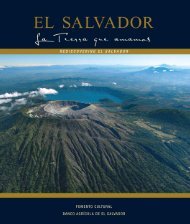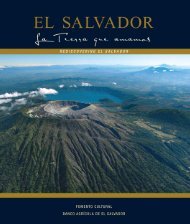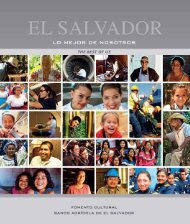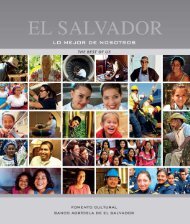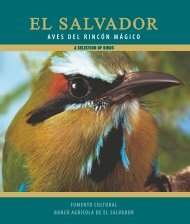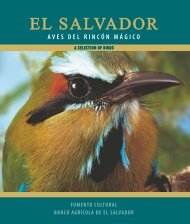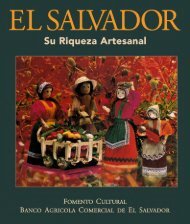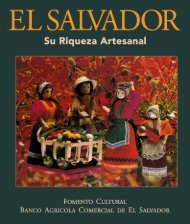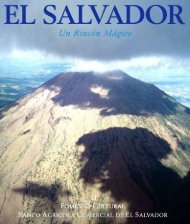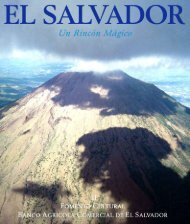Create successful ePaper yourself
Turn your PDF publications into a flip-book with our unique Google optimized e-Paper software.
The furrows for development<br />
El Salvador is one of the few countries in <strong>La</strong>tin America that cemented<br />
its republic in agriculture for more than 150 years. Coffee and sugar<br />
cane, introduced during the Republic, are the pillars of this agricultural<br />
development and its industrial development. Its producers have had the<br />
ability to adapt to global economic and technological transformations<br />
to sustain their production and continue over time as pillars of national<br />
development. In recent years, both agroindustries have sought for more<br />
environmentally friendly production methods<br />
Subsistence crops or basic grains appear in our landscape in all scenarios,<br />
from family planting to large fields and are the basis of the national diet.<br />
Throughout the country, the National Center for Agricultural Technology<br />
(CENTA) has collected in its germplasm bank more than 500 accessions<br />
or samples of beans, corn and maicillo or sorgo criollo, which vary in<br />
morphology, colors, time of cultivation and flavor, which sustains<br />
the richness and diversity in the national soil.However, for popular<br />
consumption only one variable of each crop is chosen. This is where<br />
our natural and cultural wealth is at risk of limiting nutrition, making<br />
the basic Salvadorean diet monotonous.The reduction of the variety of<br />
crops obeys to economic reasons of production or climatological ones.<br />
However, the germ plasm bank keeps seeds and herbs with projection<br />
for food sustainability.Research indicates that native -or indigenouscrops<br />
are better resistant to water stress and climate change.<br />
In a country like ours, Nature, can not be considered only from the<br />
contemplative landscape and the amazement of exuberance. It must<br />
be approached from science, agricultural innovation and by using<br />
new cultivation techni<strong>que</strong>s for the future. Current experience confirms<br />
that Salvadorean agriculture seeks the path towards environmental<br />
sustainability through various alternatives: from the production of clean<br />
technologies to the diversification of crops in the same area to nourish<br />
the soil.<br />
Every year, around 13 thousand hectares of forest disappear in the<br />
country, so the coffee forest is becoming one of the most important<br />
spaces for the conservation of groundwater. The land destined to certain<br />
types of cultivation are spaces of natural refuge. The future progress<br />
of the industry depends on achieving an adequate balance between<br />
development and conservation.<br />
126


